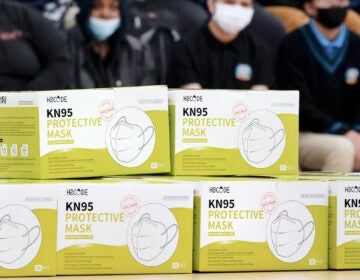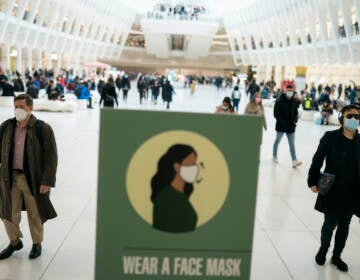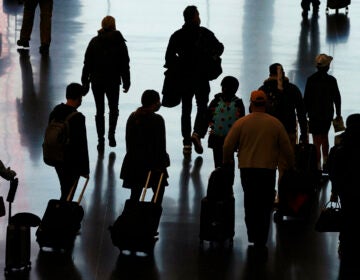Pa. coronavirus update: Food assistance for 4-year college students extended through end of pandemic
Expanding access to benefits comes at a time when schools are experiencing declines in enrollment, and more people are going hungry.
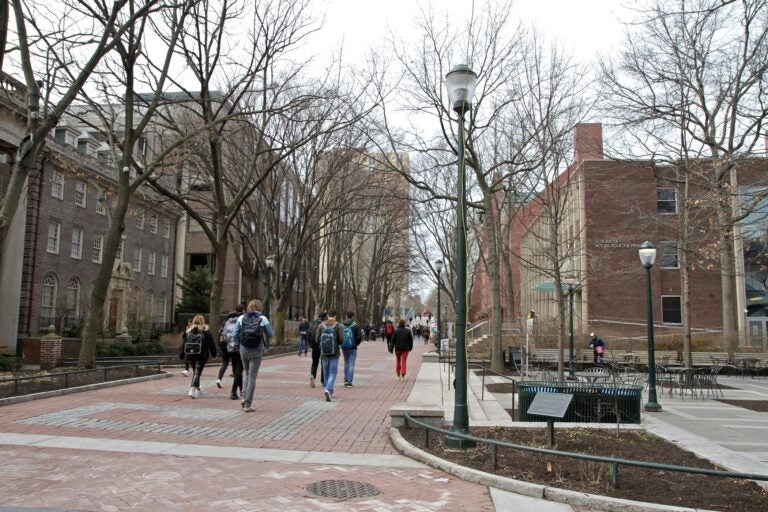
Locust Walk on the University of Pennsylvania campus. (Ximena Conde/WHYY)
Ask us about COVID-19: What questions do you have about the current surge?
Using a provision in a recent federal stimulus bill, Pennsylvania officials announced Monday that college students at four-year institutions will now be eligible for food assistance through the Supplemental Nutrition Assistance Program, or SNAP.
“The traditional student … has really changed. People are single parents now … people are the first in their [families] to go to school. And hunger is real,” said Secretary of Human Services Teresa Miller on Monday.
Expanding access to benefits comes at a time when schools are experiencing declines in enrollment, and more people are going hungry.
In order to qualify, students must also have an estimated family contribution of zero dollars on their federal financial aid forms, and be work-study eligible although not necessarily working, per language from the Consolidated Appropriations Act of 2021.
Prior to these changes, low-income students had to meet more criteria to qualify for food assistance, such as working 20 hours a week on top of attending class, which made the benefit more difficult to access.
Before the expansion, about 3.3 million students, nationally, qualified for SNAP (sometimes known as food stamps). But fewer than half actually received them, according to a 2018 report from the Government Accountability Office.
With the new rules, students who live at home can now be added to their family’s claim if they are under 22-years-old, potentially helping an entire household’s ability to eat.
Benefits average out to about $4/day, said Miller.
“All you have to do is talk to anyone on SNAP and they’ll tell you it does not cover all of your food needs,” she continued.
Students at community colleges are already eligible for food assistance under the same criteria, thanks to a 2018 policy change.
Officials said they were not sure how many students would benefit from the expansion, but it could be a great deal.
“This temporary assistance can really make a difference in the lives of the almost one-third of students who are low-income while going to college, while supporting their families,” said Dr. Tanya Garcia, Deputy Secretary for Postsecondary and Higher Education with the Pennsylvania Department of Education.
Many more low-income students are attending college than were enrolled 20 years ago, according to the Pew Research Center.
The expansion is tied to the current public health emergency and will expire 30 days after that declaration ends. Miller expressed hope that even after the coronavirus pandemic, the expanded benefit would become permanent.
The pandemic recession has increased the total number of people relying on safety net programs across the commonwealth. Overall enrollment in SNAP has grown by 84,389 since February 2020, according to the Department of Human Services, and Medicaid enrollment has ballooned by 337,772.
 WHYY is one of over 20 news organizations producing Broke in Philly, a collaborative reporting project on solutions to poverty and the city’s push towards economic justice. Follow us at @BrokeInPhilly.
WHYY is one of over 20 news organizations producing Broke in Philly, a collaborative reporting project on solutions to poverty and the city’s push towards economic justice. Follow us at @BrokeInPhilly.

Get daily updates from WHYY News!
WHYY is your source for fact-based, in-depth journalism and information. As a nonprofit organization, we rely on financial support from readers like you. Please give today.


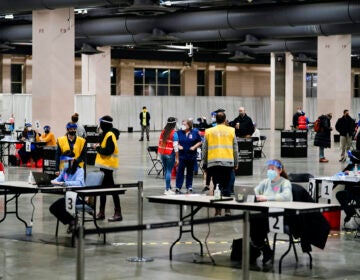

![CoronavirusPandemic_1024x512[1]](https://whyy.org/wp-content/uploads/2020/03/CoronavirusPandemic_1024x5121-300x150.jpg)
